In Theater: When swing and rock collide with Chinese operas in a musical
 0 Comment(s)
0 Comment(s) Print
Print E-mail CGTN, December 31, 2024
E-mail CGTN, December 31, 2024
Editor's note: "In Theater" brings you into the world of performing arts. Here, you can dive deep into musicals, dances, plays and other performances being staged in China and pick the brains of the brilliant artists.
What happens when the modern meets the traditional, and the West meets the East in a century-old Peking opera theater?
Blending traditional Chinese operas with modern elements like swing, rock and street dance, a unique musical titled "Till We Meet Again" made its debut on Tuesday in a historic Peking opera theater, the Huguang Guild Hall.
The story is set in around 1917, with the backdrop of a Peking opera troupe "Chunming" in the early Republic of China. It tells the coming-of-age story of a young man named "Jinsheng," who is a "Male Warrior" star of the troupe.
The "Male Warrior," or "Wusheng," is a martial character in Peking opera for roles involving combat.
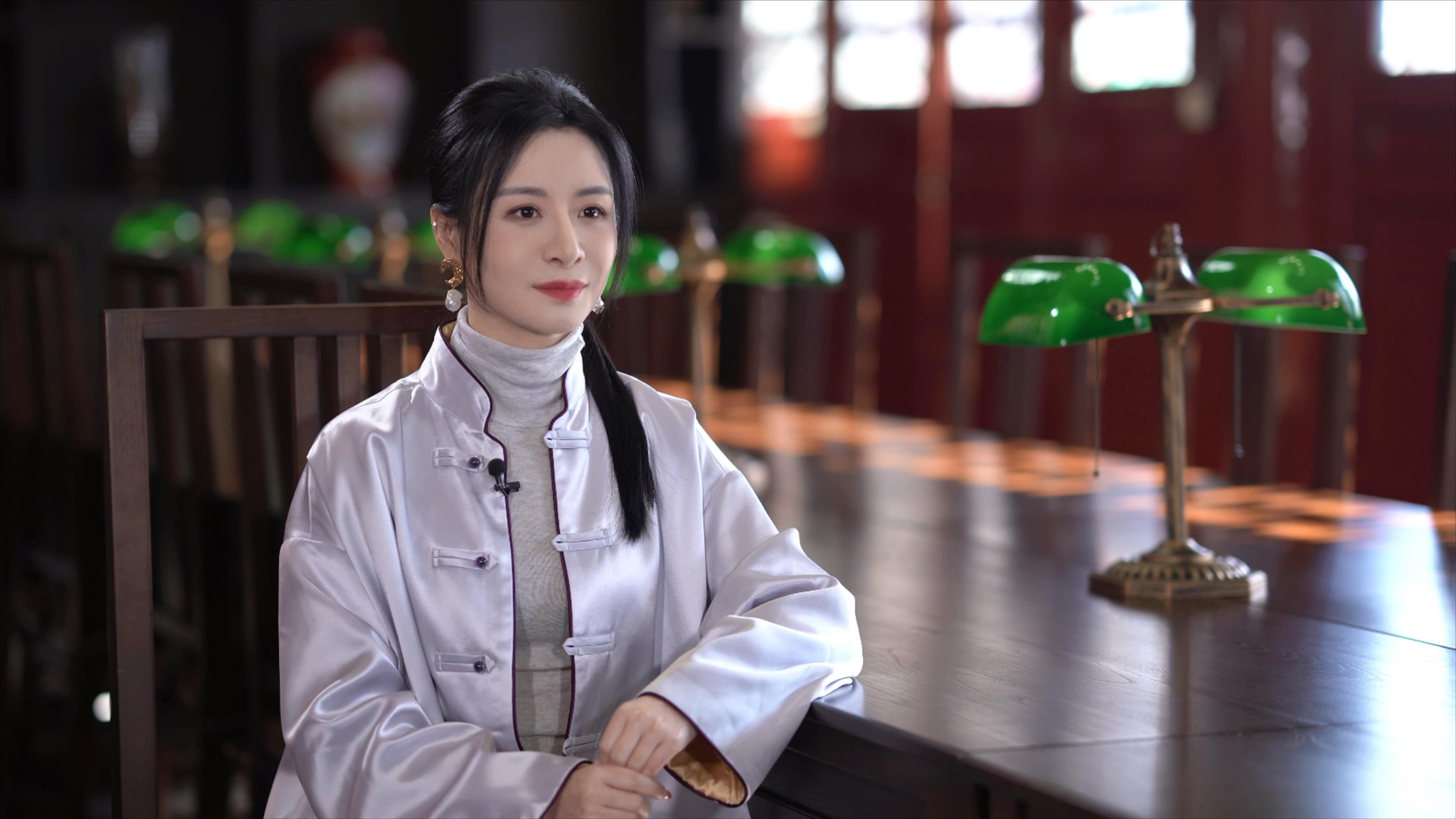
Li Zhuoqun, director, scriptwriter and lyricist of "Till We Meet Again." /Till We Meet Again
"(Wusheng) embodies a synthesis of various styles and role types, forming a comprehensive and unique art," said Li Zhuoqun, director, scriptwriter and lyricist of "Till We Meet Again."
The hot-blooded "Male Warrior" is portrayed by musical theater actor Li Chenyuan.
"I started learning traditional opera techniques from scratch for this musical. Stepping out of my comfort zone as a musical theater actor was a significant challenge," he told CGTN.
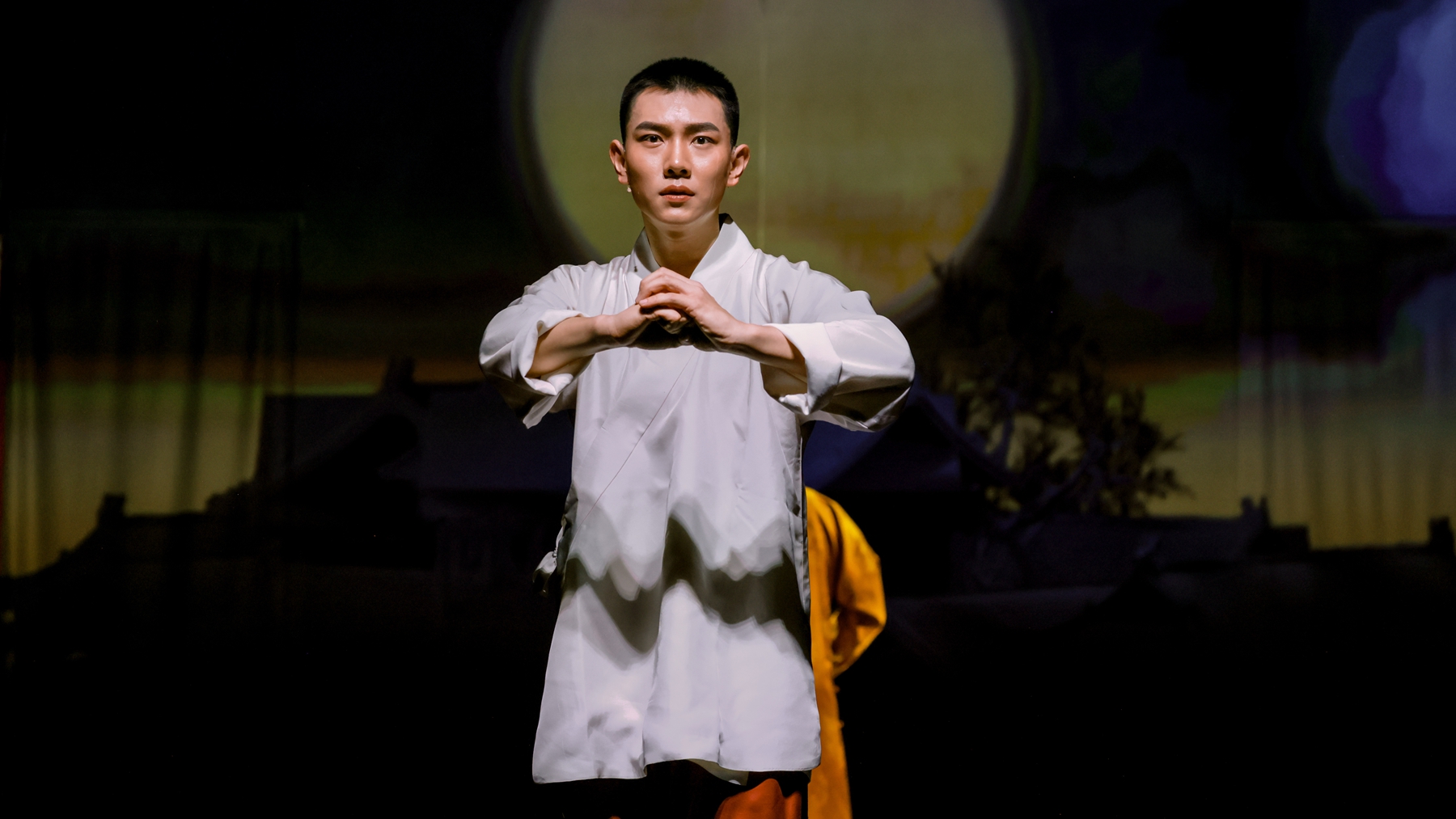
Li Chenyuan as "Jinsheng." /Till We Meet Again
Li Chenyuan explained that the skills aren't things he can pick up easily like learning a dance routine.
"The charm in the body and hand movements, as well as the strength in the posture ... the more you practice, the more these elements reflect your transformation and experiences," said the actor.
A Chinese opera play or a musical?
"Before this production, I specialized in directing traditional opera," said Li Zhuoqun. For her, this production preserves the essence of the Peking opera world while creatively using musical theater to tell Chinese stories.
"I believe there are many similarities between musicals and traditional opera, such as using songs and dances to narrate stories and rhythm and movement to express emotions," the director said. "Some have even said that Chinese opera is essentially our version of a musical theater."
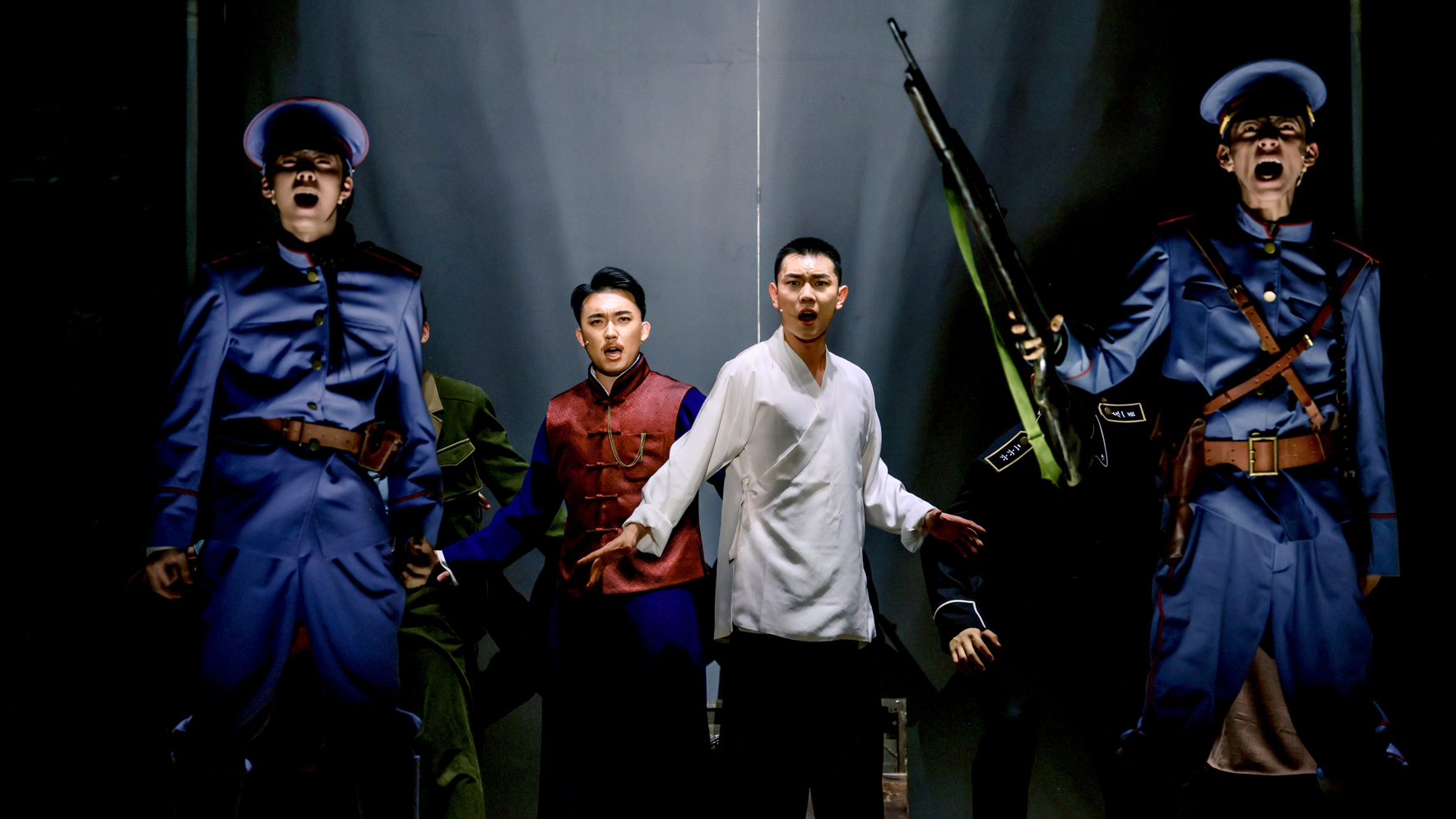
A stage photo of "Till We Meet Again." /Till We Meet Again
Li Chenyuan believes the fusion of Chinese opera and musical theater makes traditional Chinese culture more accessible to modern audiences.
"Combining the two preserves the elegance and intensity of traditional opera while enhancing the stage's visual impact through the effects of musical theater," he said.
Some have questioned whether this opera-themed production is truly a musical. The director said her team aimed to create an authentic musical theater piece, not to dilute its essence by introducing reimagined opera elements simply because of their background in opera.
"In this production, there are very few traditional opera vocalizations," she said, adding that the musical styles are diverse, including swing, rock and electronic elements.
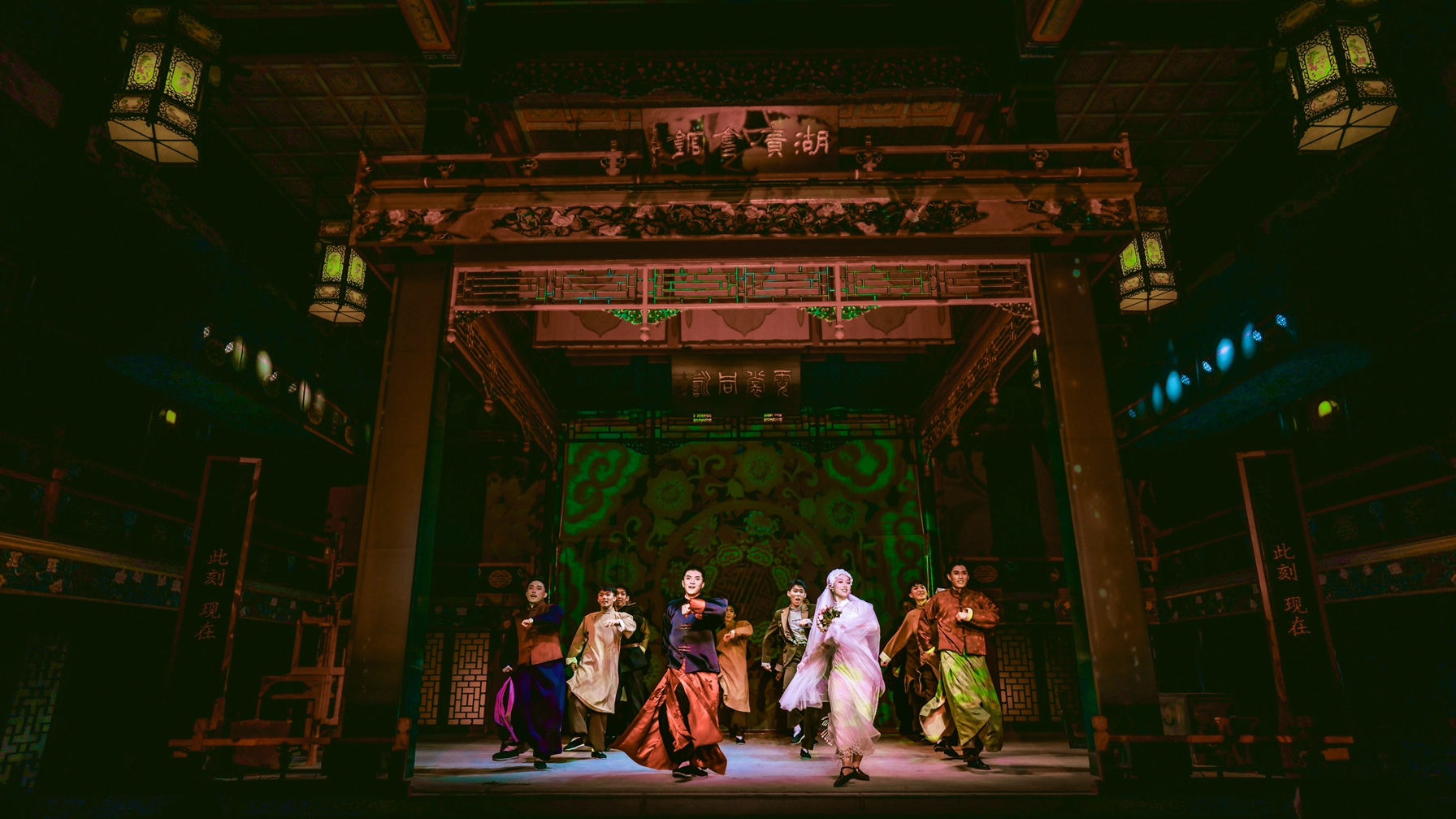
A stage photo of the segment "Chinese Romance." /Till We Meet Again
One segment of the show, titled "Chinese Romance," takes place after the lead characters fall in love. Though this song-and-dance number is inspired by Disney-style musicals, the lyrics remain deeply rooted in Chinese poetic expressions of romantic sentiment.
"This creates fascinating chemistry on stage," Li Zhuoqun said. "We wanted to experiment with what it would feel like to perform Disney-like dances while wearing Chinese traditional robes and qipaos, and singing Crescent Moon School of poetry."
Expanding the reach of traditional culture
In recent years, many musicals, plays and films have embraced Chinese traditional culture.
"Beyond opera, I believe there's significant artistic value in many aspects of Chinese traditional culture that deserves exploration and expression," said Li Chenyuan.
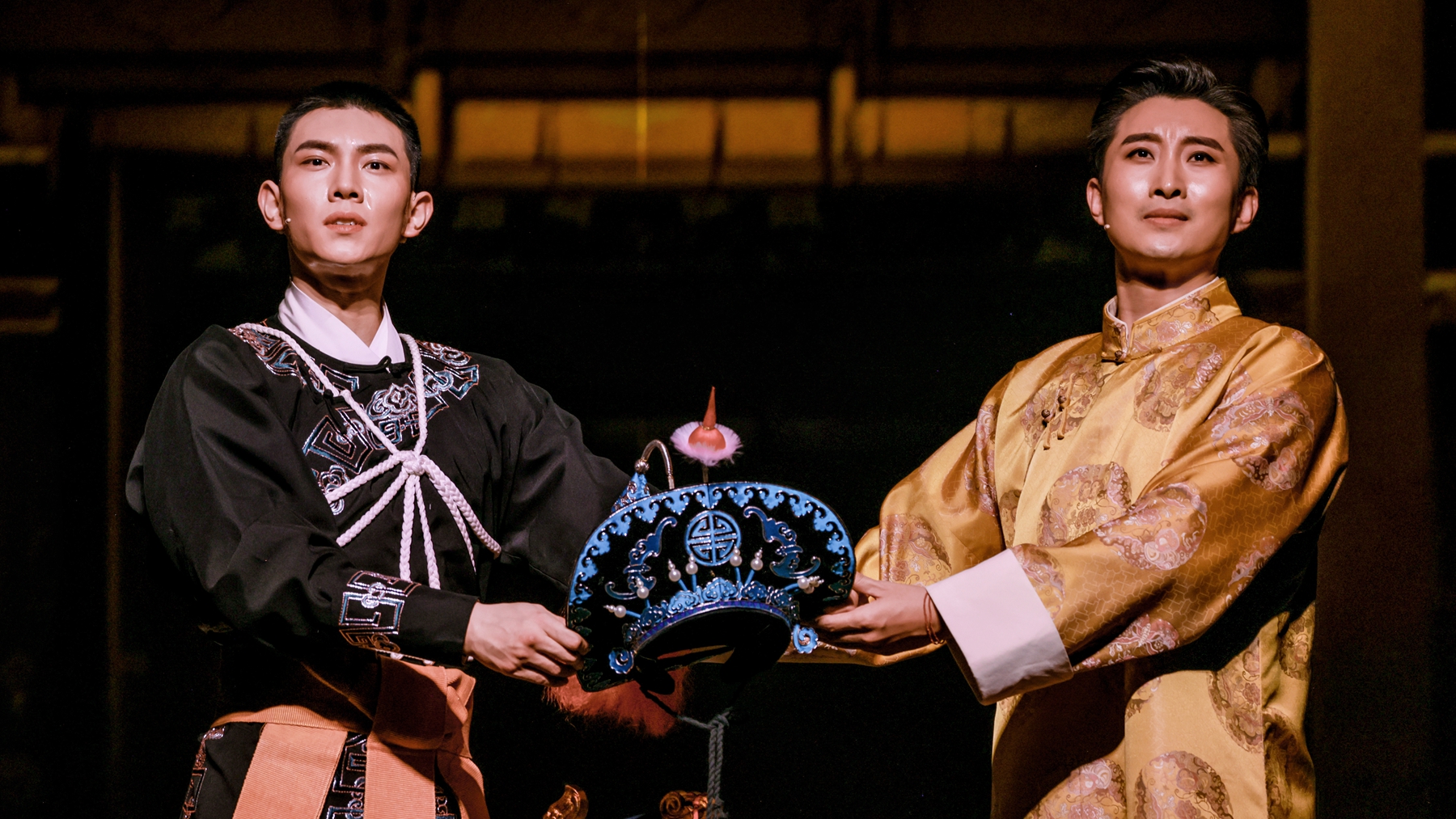
A stage photo of Li Chenyuan (L) as "Jinsheng" and Hu You (R) as "Yutao." /Till We Meet Again
"In the opera world, we often talk about 'breaking boundaries,'" Li Zhuoqun said. "While we strive to break boundaries, we must not overstep or lose the essence of musical theater."
The director hopes the traditional opera can expand its reach in the future.
"I also hope musical theater will draw more audiences into theaters to experience traditional opera," she said. "I hope our opera art can embrace and learn from other art forms and make them our own."



